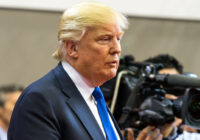The easiest way to determine whether a political spokesperson is hiding something and misrepresenting the truth of their own government’s position is to examine their misuse of the tools of rhetoric.
An article in Forbes with the title, “Saudi Arabia Threatens ‘Force If Necessary’ Against ‘Criminal Iranian Regime’” starts with a quote by Saudi Foreign Minister Adel al-Jubeir, who assures the public that “Saudi Arabia does not want a war in the region nor does it seek that.” Some may wonder why Jubeir felt necessary to use the word “nor.”
Here is today’s 3D definition:
Nor:
The negative of the conjunction “or,” used to propose two alternatives, both of which are to be excluded; sometimes used ineptly by political figures to propose the same thing twice with a slightly different formulation, which inadvertently reveals that the speaker is desperate to deny something that is probably true
Contextual note
What is the difference between “Saudi Arabia does not want a war” or “seek” a war? One describes a disposition; the other describes an intention. Why repeat the same idea twice, unless it is a case of the lady protesting too much?
The real, unexpressed intention becomes clear through the rhetoric. Saudi Arabia wants everyone to believe what is obviously the contrary of what any observer would have noticed over the past five years. War in Yemen is not the same thing as war with Iran, but Riyadh has made it clear that the purported justification for its ongoing war crimes and crimes against humanity in Yemen is its desire to conduct a proxy war with Iran, a conflict the Saudis themselves initiated.
Jubeir is right to think it wiser, as a rhetorical ploy, to insist one does not want war just before going to war. In the US, it’s the equivalent of the attitude expressed by the phrase, “a man’s got to do what a man’s got to do,” meaning that the heinous act is driven by a sense of duty rather than a positive wish. But by reformulating the same idea twice and using “nor” to make it appear as if some kind of deliberation between alternatives is taking place, the foreign minister gives away his game.
Saudi Arabia under Crown Prince Mohammed bin Salman — just like Israel under Prime Minister Benjamin Netanyahu — wants not its own war, but a new US war against Iran. It may even be prepared to put together classic false flag operations — an attack on Saudi and international tankers in the United Arab Emirates, for example — to make it happen. Remember the Maine… and Pearl Harbor… and the Gulf of Tonkin. Whether it’s a real aggression (Pearl Harbor, the USS Cole) or a false flag, attacks on ships have for centuries provided the universal model.
The National Interest succinctly sums up the logic of the situation with the title of this article: “Saudi Arabia Wants to Fight Iran to the Last American.” The main point made is this: “Saudi Arabia’s ultimate aim is to drag the United States back into the Middle East in order for Washington to reestablish its military dominance and reimpose on the region an equilibrium that favors Tel Aviv and Riyadh.”
Historical note
As has always been done throughout history, Jubeir describes Saudi Arabia’s strategic orientation as the noble determination to respond to the evil of others. The same Jubeir, we should remember, spent months denying any Saudi responsibility for the evil of journalist Jamal Khashoggi’s assassination in October 2018. Speaking of Saudi Arabia’s policy on a potential war with Iran, the foreign minister says: “It will do what it can to prevent this war and at the same time it reaffirms that in the event the other side chooses war, the kingdom will respond with all force and determination, and it will defend itself and its interests.”
No one can doubt what Jubeir means by “respond with all force” and “defend itself and its interests.” Quite simply: go to war and pursue that war to the hilt. In the meantime, US President Donald Trump has tweeted: “If Iran wants to fight, that will be the official end of Iran. Never threaten the United States again.”
If Iran wants to fight, that will be the official end of Iran. Never threaten the United States again!
— Donald J. Trump (@realDonaldTrump) May 19, 2019
Al Jazeera’s Patty Culhane sums up the consternation of most observers, obliged to formulate their own either/or or neither/nor hypotheses: “So the big question is why did he send that confrontational tweet? Is it because he received some sort of classified briefing or is it because of something he watched on television? We don’t know.”
This is just another indication that the world has moved definitively into the realm of hyperreality. War is no longer what it was — a series of battles between opposing armies to control territory. It has become a permanent state of organized destruction, with a newly-minted pattern in two essential phases, starting with build-up before moving on to permanent execution.
It begins with crippling sanctions designed to provoke the incidents of aggression required to launch the assault. The incidents may be real or imaginary, so long as the media comply by reporting them with the suggestion that they were entirely gratuitous and unprovoked, devoid of context. This makes it possible to make a precipitous decision — since there is no time for the formality of declaring war — that effectively launches an armed conflict, which, in its final (but never terminated) phase will be consolidated either by a puppet regime (marking the “official end” of the existing regime) or, in case of persisting institutions, by traditional no-fly zones and less traditional fly-everywhere drone zones. This is how we produce wars made for television and increasingly made by television, the ultimate face of hyperreality.
Culhane asks a serious either/or question: Was it something the US president saw on TV (meaning Fox News) or a briefing possibly prepared by those who anonymously feed Fox the latest alarms about the other side’s aggression?
Neither/nor no longer exists, except in Jubeir’s deceptive rhetoric, because an answer of neither/nor should logically open the questioning up to new hypotheses. But if a hypothesis hasn’t been exposed on television and in the popular media, no one need take it seriously. That’s one of the key operating principles of hyperreality.
*[In the age of Oscar Wilde and Mark Twain, another American wit, the journalist Ambrose Bierce, produced a series of satirical definitions of commonly used terms, throwing light on their hidden meanings in real discourse. Bierce eventually collected and published them as a book, The Devil’s Dictionary, in 1911. We have shamelessly appropriated his title in the interest of continuing his wholesome pedagogical effort to enlighten generations of readers of the news.]
The views expressed in this article are the author’s own and do not necessarily reflect Fair Observer’s editorial policy.
Support Fair Observer
We rely on your support for our independence, diversity and quality.
For more than 10 years, Fair Observer has been free, fair and independent. No billionaire owns us, no advertisers control us. We are a reader-supported nonprofit. Unlike many other publications, we keep our content free for readers regardless of where they live or whether they can afford to pay. We have no paywalls and no ads.
In the post-truth era of fake news, echo chambers and filter bubbles, we publish a plurality of perspectives from around the world. Anyone can publish with us, but everyone goes through a rigorous editorial process. So, you get fact-checked, well-reasoned content instead of noise.
We publish 3,000+ voices from 90+ countries. We also conduct education and training programs
on subjects ranging from digital media and journalism to writing and critical thinking. This
doesn’t come cheap. Servers, editors, trainers and web developers cost
money.
Please consider supporting us on a regular basis as a recurring donor or a
sustaining member.
Will you support FO’s journalism?
We rely on your support for our independence, diversity and quality.








Commenting Guidelines
Please read our commenting guidelines before commenting.
1. Be Respectful: Please be polite to the author. Avoid hostility. The whole point of Fair Observer is openness to different perspectives from perspectives from around the world.
2. Comment Thoughtfully: Please be relevant and constructive. We do not allow personal attacks, disinformation or trolling. We will remove hate speech or incitement.
3. Contribute Usefully: Add something of value — a point of view, an argument, a personal experience or a relevant link if you are citing statistics and key facts.
Please agree to the guidelines before proceeding.